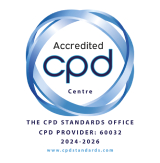

This activity has been accredited by The CPD Standards office and equates to 2.5 hours of CPD.
How our Customers rate us:

Clinical Skills (HSG)

Bulk Buy Discounts
This course has been designed as an introduction to basic clinical skills that are required by all individuals working within the healthcare sector
If you would like to see how our Elearning platform works before purchasing, click on the ‘try before you buy’ button below and you can try a full length Elearning module, completely free of charge!
- Duty of Care
- Your Healthcare Career
- Person Centred Care
- Communication
- Consent
- Privacy & Dignity
- Fluids & Nutrition
- Dementia Awareness
Your Healthcare Career
- Know how to identify the requirements of a work role, including the use of relevant standards, codes of conduct and practice
- Understand why it is important to work in ways that are agreed with their employer
- Be aware of the key rights and responsibilities in employment and how a working relationship is different from a personal relationship
- Understand why it is important to work in teams and in partnership with others
- Understand why it is important to work in partnership with key people, advocates and others who are significant to patient's/service users
- Know why continuing professional development is important
- Understand the process for agreeing a personal development plan and who should be involved
- Know why feedback from others is important in helping to develop and improve the way they work
- Understand the principles of reflective practice and why it is important
- Know how to identify development needs against relevant standards
- Understand the purpose and benefits of supervision and appraisal or similar arrangements
- Be aware of a range of learning opportunities and how they can be used
- Understand why it is important to be honest and identify where errors may have occurred and to tell the appropriate person
- Know when to escalate any concerns and the purpose of whistleblowing in an organisation.
Duty of Care
- Know what is meant by duty of care
- Understand how duty of care contributes to safe practice
- Be aware of dilemmas that may arise between the duty of care and an individual's rights
- Understand the importance of learning from comments and complaints to improve the quality of service
- Be able to recognise and deal with adverse events, incidents, errors and near misses
- Be aware of legislation relevant to reporting adverse events, incidents, errors and near misses
- Be aware of factors and difficult situations that may cause confrontation
- Know how communication can be used to solve problems and reduce the likelihood or impact of confrontation
- Know how to assess and reduce risks in confrontational situations
Person Centred Care
- Understand the importance of person-centred values in providing on-going care and support to individuals
- Understand how to work in a person-centred way including:
- the importance of finding out the history, preferences, wishes and needs of the individual
- why the changing needs of an individual must be reflected in their care and/or support
- the importance of supporting individuals to plan for their future wellbeing and fulfilment, including end of life care
- Be aware of how environmental factors may have the potential to cause discomfort or distress and how to make changes to address such factors
- Be aware of signs that an individual may be in pain or discomfort and know how to take appropriate action where there is pain or discomfort
- Know how to make others aware of any actions they may be undertaking that are causing discomfort or distress to individuals
- Understand how to support individuals to maintain their identity and self-esteem
- Know how to support individuals using person-centred values including respect for individuality, dignity and choices
- Know how to report any concerns to the relevant person
- Know how to assess and reduce risks in confrontational situations
Communication
- Understand the importance of effective communication at work
- Understand the different ways that people communicate
- Know how to meet the communication and language needs, wishes and preferences of individuals
- Know how to promote effective communication, including how to reduce barriers to communication and the importance of active listening
- Know how and when to use appropriate verbal and non-verbal communication
- Be aware of environments and approaches for communicating effectively about difficult, complex and sensitive issues
- Understand the importance of effective communication in preventing or diffusing conflict or challenging behaviour
- Understand the reasons for being open and transparent with service users about their care and treatment
- Understand the principles and practices relating to confidentiality
- Know how to support the use of appropriate communication aids/technologies
Consent
- Understand the requirements for seeking valid consent
- Know about different ways a person may give (or refuse) consent
- Know the types of circumstance where a written record of consent (or refusal) must be obtained
- Be able to communicate effectively about proposed treatment or care to enable individuals to make informed choices
- Be aware of potential implications of providing insufficient information about proposed treatment or care
- Understand the right of individuals to refuse consent and ways to respond to refusal of consent
- Understand the types of circumstances in which adults may lack capacity to consent
- Understand types of action that may be taken in emergency situations where an individual may be temporarily unable to consent
- Know how advanced decisions can be used to provide information about the wishes of an individual
- Be aware of the protocols and legislation for obtaining consent for children and young people
- Be aware of the protocols and legislation regarding consent for people who are mentally incapacitated
- Understand how best interests decisions may need to be made for those lacking capacity
- Be aware of key principles in legislation relevant to mental capacity and consent.
Privacy & Dignity
- Understand the principles that underpin privacy and dignity in care
- Know how to maintain privacy and dignity of individuals when providing personal care
- Understand why it is important not to disclose information that an individual may wish to be kept private, unless it is appropriate to do so
- Understand an individual's right to make choices (including choices about their care) and how to support individuals to make their own decisions
- Know how risk assessment processes may be used to support the right of individuals to make their own decisions
- Understand how to support the active participation of individuals in their care
- Know how to report any concerns to the relevant person
Fluids Nutrition
- Understand the importance of good hydration and nutrition in maintaining health and wellbeing
- Know the signs and symptoms of poor hydration and nutrition
- Understand the importance of food safety, including hygiene, in the preparation and handling of food
- Know how to promote adequate hydration and nutrition
- Understand the effects of culture and religion on individual's dietary requirements and preferences
- Know how individuals can be supported and encouraged to access fluids in accordance with their preferences, requirements and/or plan of care
- Know how individuals can be supported and encouraged to access food and nutrition in accordance with their preferences, requirements and/or plan of care
- Know how to report any concerns to the relevant person
Dementia Awareness
- Know what is meant by the term 'dementia'
- Be aware of the prevalence of dementia in the UK population
- Be able to recognise signs of dementia and also be aware that these signs may be associated with other conditions or circumstances
- Know what actions individuals can take to reduce their risk of dementia, or to delay onset
- Know why early diagnosis of dementia is important
- Know the actions that people affected by dementia can take in order to live as well as possible after diagnosis
- Understand the importance of recognising the person with dementia as a unique individual
- Be aware of the impact of dementia on individuals, families and society
- Be able to communicate effectively and compassionately with individuals who have dementia
- Understand reasons why a person with dementia may exhibit signs of distress and how behaviours seen in people with dementia may be a means for communicating unmet needs
- Be able to signpost individuals, families and carers to dementia advice, support and information
Upon completion of this Elearning course, a PDF certificate will be available straight away, that can be downloaded and printed for your records. Each course contains multiple-choice questions and interactive exercises that you’ll need to complete in order to show your understanding of the material and pass the course. Your certificate will be valid for 1 year.



This activity has been accredited by The CPD Standards office and equates to 2.5 hours of CPD.
How our Customers rate us:



















